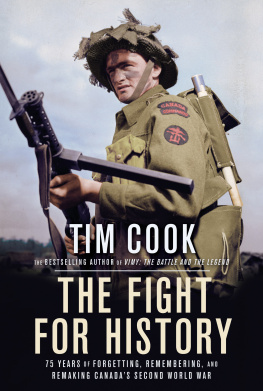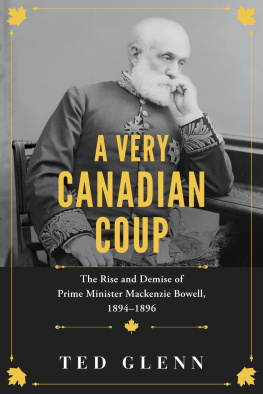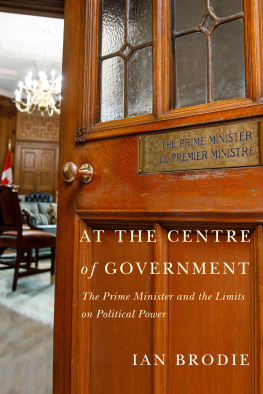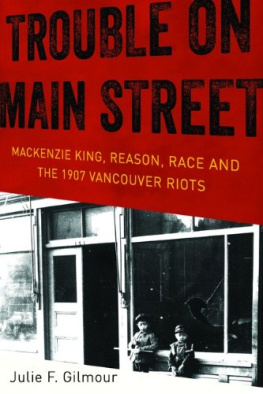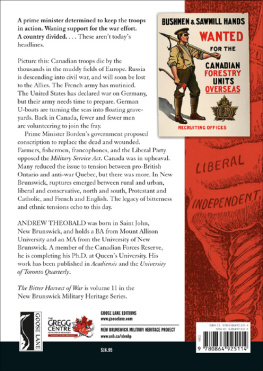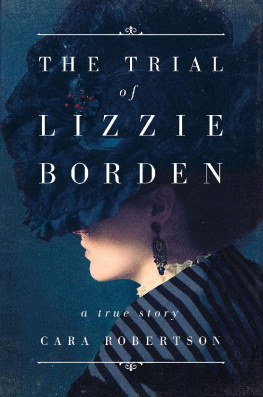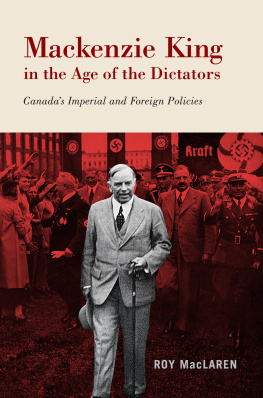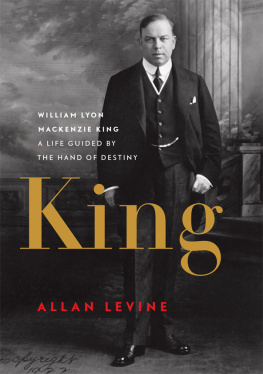

ALLEN LANE
an imprint of Penguin Canada
Published by the Penguin Group
Penguin Group (Canada)
90 Eglinton Avenue East, Suite 700, Toronto, Ontario, Canada M4P 2Y3
Penguin Group (USA) Inc., 375 Hudson Street, New York, New York 10014, U.S.A. Penguin Books Ltd, 80 Strand, London WC2R 0RL, England
Penguin Ireland, 25 St Stephens Green, Dublin 2, Ireland (a division of Penguin Books Ltd) Penguin Group (Australia), 250 Camberwell Road, Camberwell, Victoria 3124, Australia
(a division of Pearson Australia Group Pty Ltd)
Penguin Books India Pvt Ltd, 11 Community Centre, Panchsheel Park, New Delhi 110 017, India
Penguin Group (NZ), 67 Apollo Drive, Rosedale, Auckland 0632, New Zealand
(a division of Pearson New Zealand Ltd)
Penguin Books (South Africa) (Pty) Ltd, 24 Sturdee Avenue, Rosebank, Johannesburg 2196, South Africa
Penguin Books Ltd, Registered Offices: 80 Strand, London WC2R 0RL, England
First published 2012
1 2 3 4 5 6 7 8 9 10 (RRD)
Copyright Tim Cook, 2012
All rights reserved. Without limiting the rights under copyright reserved above,no part of this publication may be reproduced, stored in or introduced into a retrieval system, or transmitted in any form or by any means (electronic, mechanical, photocopying, recording or otherwise), without the prior written permission of both the copyright owner and the above publisher of this book.
All Library and Archives Canada photos in this book are Government of Canada. Reproduced with the permission of the Minister of Public Works and Government Services Canada.
Manufactured in the U.S.A.
LIBRARY AND ARCHIVES CANADA CATALOGUING IN PUBLICATION
Cook, Tim, 1971
Warlords : Borden, Mackenzie King, and Canadas world wars / Tim Cook.
Includes bibliographical references and index.
ISBN 978-0-670-06521-9
1. Borden, Robert Laird, Sir, 18541937Military leadership.
2. King, William Lyon Mackenzie, 18741950Military leadership.
3. CanadaMilitary policy. 4. World War, 19141918Canada.
5. World War, 19391945Canada.
6. CanadaPolitics and government19111921.
7. CanadaPolitics and government
19351948. 8. Prime ministersCanadaBiography. I. Title.
FC555.C65 2012 971.0612 C2012-903282-4
Visit the Penguin Canada website at www.penguin.ca
Special and corporate bulk purchase rates available; please see www.penguin.ca/corporatesales or call 1-800-810-3104, ext. 2477.

TO MY GIRLS:
PAIGE, EMMA, CHLOE, AND SARAH
CONTENTS

PROLOGUE

T wo portraits flank the doors leading into Canadas House of Commons. Their subjects have been depicted by sympathetic artists as statesman-like, although with a hint of the common touch, charismatic yet stern, wise but judicious. On the left is Sir Robert Borden, prime minister of Canada from 1911 to 1920; on the right is William Lyon Mackenzie King, prime minister for most of the period from 1921 to 1948. The paintings are conventional, but the plaques attached to them are curious. Bordens caption reads: World War I War Leader, 19141918, and Kings is similar: World War II War Leader, 19391945. No other dates are given. While the portrait captions of every other prime minister in the lobby contain their inclusive dates of service, only two, Borden and King, are defined solely by their wartime leadership.
Perhaps the description makes sense for Borden, who did little of note before the war, but it does not ring true for King, as Canadas longest-serving prime minister, with almost fifteen years of prewar leadership. Yet in both cases it is indeed the world wars that shaped their legacy. The portraits stand alone, as do their careers as war leaders. But there is value in examining the parallel stories of these two men, for when presented side by side, like their portraits, they reveal new meaning and continuing connections that animate some of the core themes of Canadas story.
Given the two mens prewar backgrounds and political record, few could have imagined Borden or King as wartime leaders. They were unmilitary in education, training, and, in the case of King, physical bearing. King admitted as much. It seems odd to me to think of myself as a war leader, he wrote in his diary, during the sixth year of the Second World War. Nothing could sound to me more remote. The burden of wartime leadership weighed heavily on them.
In the world wars against Germany and its allies, from 1914 to 1918 and from 1939 to 1945, the majority of Canadians were willing to pay almost any price to secure victory. A nation of unmilitary people, as Canadians have sometimes been described, contributed more than 1.7 million men and women to campaigns and theatres of battle around the world; over 113,000 paid with their lives, and many more with wounds to the body and mind. Because of its part in the Great War, Canada was recognized as a country that had shed its colonial status and earned the right to control its own destiny. During the Second World War, Canadas enormous role in supporting its allies reinforced the nations independence, and set the Dominion on a new trajectory towards prosperity and an international presence. Both wars were meant to defend the old order, but both ushered in massive disruptions: government intervention in the form of income tax, health care, and conscription; changes to society through industrialization, enfranchisement, and patriotic unpaid labour; and the raising of large armed forces from a civilian base rather than professional service personnel. Contentious issues arose over the governments invocation of emergency powers under the War Measures Act, its management of dissenting minorities, and its attempts to balance the voracious demands of allies with what Canadians could be expected to bear. Some wartime actions, such as the conscription of young men for military service and the mistreatment of Japanese Canadians, are offensive to present-day sensibilities but need to be understood within their historical context, as do all the other difficult decisions the government either took or avoided.
Despite bookending a nearly thirty-year period of war, reconstruction, depression, and rearmament, the world wars exerted similar pressures and strains on Canadians, their society, and their leaders. This book does not attempt to judge Borden and King in comparison to one another, but instead to understand how they guided their country through two of the most disruptive periods in our collective history. In fact, a direct comparison is impossible because the two men led Canada at different stages of its economic and constitutional development. Nonetheless, they faced similar challenges, which shed light on the prime ministers wartime actions and revealed their respective characters.
At the core of this book is the question of how prime ministers lead their country in times of war. Few would think of Borden or King as warlords, yet this is the role into which they were thrust. Neither was attracted to war. Neither had many friends or acquaintances in the armed forces. Their lack of interest in military affairs is typical of Canadian leaders. Only two ministers of national For much of the second half of the twentieth century, Canadians were proud to embrace the role of international peacekeeper. Notwithstanding all these indications of Canadas peaceable legacy, any study of the nations past reveals that Canadians have also turned readily to war in support of allies, alliances, international obligations, ideals, or humanitarian relief.
Next page


